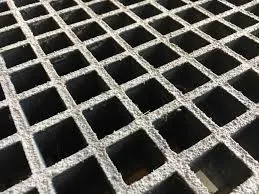
-
 Afrikaans
Afrikaans -
 Albanian
Albanian -
 Amharic
Amharic -
 Arabic
Arabic -
 Armenian
Armenian -
 Azerbaijani
Azerbaijani -
 Basque
Basque -
 Belarusian
Belarusian -
 Bengali
Bengali -
 Bosnian
Bosnian -
 Bulgarian
Bulgarian -
 Catalan
Catalan -
 Cebuano
Cebuano -
 China
China -
 China (Taiwan)
China (Taiwan) -
 Corsican
Corsican -
 Croatian
Croatian -
 Czech
Czech -
 Danish
Danish -
 Dutch
Dutch -
 English
English -
 Esperanto
Esperanto -
 Estonian
Estonian -
 Finnish
Finnish -
 French
French -
 Frisian
Frisian -
 Galician
Galician -
 Georgian
Georgian -
 German
German -
 Greek
Greek -
 Gujarati
Gujarati -
 Haitian Creole
Haitian Creole -
 hausa
hausa -
 hawaiian
hawaiian -
 Hebrew
Hebrew -
 Hindi
Hindi -
 Miao
Miao -
 Hungarian
Hungarian -
 Icelandic
Icelandic -
 igbo
igbo -
 Indonesian
Indonesian -
 irish
irish -
 Italian
Italian -
 Japanese
Japanese -
 Javanese
Javanese -
 Kannada
Kannada -
 kazakh
kazakh -
 Khmer
Khmer -
 Rwandese
Rwandese -
 Korean
Korean -
 Kurdish
Kurdish -
 Kyrgyz
Kyrgyz -
 Lao
Lao -
 Latin
Latin -
 Latvian
Latvian -
 Lithuanian
Lithuanian -
 Luxembourgish
Luxembourgish -
 Macedonian
Macedonian -
 Malgashi
Malgashi -
 Malay
Malay -
 Malayalam
Malayalam -
 Maltese
Maltese -
 Maori
Maori -
 Marathi
Marathi -
 Mongolian
Mongolian -
 Myanmar
Myanmar -
 Nepali
Nepali -
 Norwegian
Norwegian -
 Norwegian
Norwegian -
 Occitan
Occitan -
 Pashto
Pashto -
 Persian
Persian -
 Polish
Polish -
 Portuguese
Portuguese -
 Punjabi
Punjabi -
 Romanian
Romanian -
 Russian
Russian -
 Samoan
Samoan -
 Scottish Gaelic
Scottish Gaelic -
 Serbian
Serbian -
 Sesotho
Sesotho -
 Shona
Shona -
 Sindhi
Sindhi -
 Sinhala
Sinhala -
 Slovak
Slovak -
 Slovenian
Slovenian -
 Somali
Somali -
 Spanish
Spanish -
 Sundanese
Sundanese -
 Swahili
Swahili -
 Swedish
Swedish -
 Tagalog
Tagalog -
 Tajik
Tajik -
 Tamil
Tamil -
 Tatar
Tatar -
 Telugu
Telugu -
 Thai
Thai -
 Turkish
Turkish -
 Turkmen
Turkmen -
 Ukrainian
Ukrainian -
 Urdu
Urdu -
 Uighur
Uighur -
 Uzbek
Uzbek -
 Vietnamese
Vietnamese -
 Welsh
Welsh -
 Bantu
Bantu -
 Yiddish
Yiddish -
 Yoruba
Yoruba -
 Zulu
Zulu
fiberglass drum
The Versatility and Applications of Fiberglass Drums
Fiberglass drums are fast gaining popularity across various industries due to their lightweight, corrosion-resistant properties and superior strength. Traditionally, drums made from steel or plastic have been the standard for transporting liquids and bulk materials. However, the introduction of fiberglass offers several advantages, making it an attractive alternative.
Composition and Properties of Fiberglass Drums
Fiberglass, a composite material made from strands of glass fibers embedded in a resin matrix, is known for its durability and flexibility. The manufacturing process of fiberglass drums involves layering glass fibers with resin, then curing them to form a robust structure. This results in a drum that is not only lightweight but also resistant to a wide range of chemicals, including acids, bases, and solvents.
Another significant property of fiberglass drums is their resistance to extreme temperatures. They can perform well in both freezing and very high temperatures, making them suitable for various environments. Additionally, they are non-conductive, which further enhances their safety when storing or transporting potentially hazardous materials. The layer of fiberglass helps prevent rust and corrosion, which can be a significant concern with traditional metal drums.
Environmental Benefits
In the pursuit of sustainability, fiberglass drums score high marks. They are often reusable and recyclable, reducing waste associated with single-use materials. The manufacturing process of fiberglass is also being refined to minimize environmental impact. By choosing fiberglass, companies can demonstrate their commitment to eco-friendly practices, appealing to consumers who prioritize sustainability.
Applications Across Industries
The versatility of fiberglass drums makes them suitable for a wide array of applications
. One of the most common uses is in the chemical industry, where they are used to store and transport hazardous materials safely. Their resistance to corrosion and chemicals means that companies can trust them to maintain the integrity of the materials they hold.fiberglass drum

In the food and beverage sector, fiberglass drums are used to store liquids, such as oils or juices. These drums can be manufactured to comply with health and safety regulations, ensuring that no harmful substances leach into the products. Their lightweight nature allows for easy handling, transport, and storage within warehouses.
The pharmaceutical industry also benefits from fiberglass drums, as they can safely store bulk ingredients and other components used in drug manufacturing. The drums’ non-reactive properties ensure that they do not interact with the sensitive compounds within, maintaining the quality of the stored materials.
Additionally, fiberglass drums are increasingly being used in the agriculture sector for storing fertilizers and pesticides. Their robustness can withstand the harsh conditions often found in agricultural settings, while their lightweight design aids in handling and transportation.
Demerits and Challenges
While fiberglass drums come with numerous advantages, they are not without their downsides. The initial cost of fiberglass drums can be higher than that of metal or plastic alternatives. This can deter businesses on tight budgets from making the switch. However, the long-term savings from durability and reduced maintenance often outweigh the upfront investment.
Another challenge is the potential for damage during handling. Although fiberglass is durable, it can shatter under significant impact, unlike metal drums, which may bend without breaking. This aspect requires proper handling and transportation practices to ensure the longevity of the drums.
Conclusion
Fiberglass drums represent a significant advancement in storage and transport solutions across varying industries. Their lightweight, durable, and corrosion-resistant properties make them an excellent choice for many applications, from chemical storage to food and beverage. As industries continue to look for sustainable and safe solutions, fiberglass drums stand out as a versatile option that harmonizes performance with environmental responsibility.
Adopting fiberglass drums can enhance operational efficiency and product safety, ultimately leading to better outcomes for companies and consumers alike. As manufacturing technology advances, we can expect to see even more innovative applications for these reliable containers, further solidifying their place in the modern industrial landscape.









